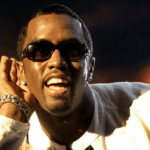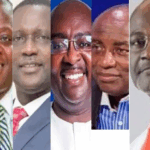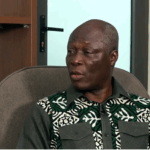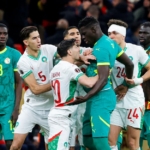
The final verdict is in. Sean “Diddy” Combs has been sentenced to 50 months (four years and two months) in federal prison after being convicted on two counts of transportation to engage in prostitution (Mann Act violations). He must also pay a $500,000 (GHS 6,250,000) fine.
The sentence confirms the dramatic fall of a global icon. While Combs was acquitted of the most serious charges of sex trafficking and racketeering, the conviction fundamentally alters his public narrative. For many in Ghana and across Africa, the legal saga was more than celebrity gossip — it became a powerful cultural mirror, sparking conversations about power, morality, and the responsibility that comes with success.
The Case Context: Allegations, Defence, and the Final Verdict
The road to this sentencing began with a cascade of civil lawsuits alleging sexual abuse, rape, and exploitation spanning decades. Although the federal investigation initially focused on wide-ranging allegations of sex trafficking and racketeering — which fuelled intense media scrutiny — the jury ultimately returned a narrower conviction.
Combs’ defence team portrayed him as a successful and philanthropic entrepreneur unfairly targeted for his prominence. They attempted to leverage his positive legacy against the seriousness of the accusations. However, the evidence presented in court was sufficient to secure conviction under the Mann Act, confirming a pattern of abusing influence to transport individuals across state lines for illicit purposes.
The “Accra to Harlem” Blueprint: Validation and Caution
Diddy represented a pinnacle of Black American success. His wealth and influence became cultural exports. Many African youths benchmarked their ambitions against such figures, aspiring to the global status he embodied.
The conviction has now tarnished that legacy. As one fan lamented outside the US courthouse, it is “devastating to see a pioneer of the Black community’s legacy nearly diminished.” That sentiment resonates deeply on the streets of Accra.
Young Ghanaians saw Diddy as a source of cultural pride, particularly after he served as executive producer on Nigerian megastar Burna Boy’s Grammy-winning album Twice As Tall in 2020. The collaborative model — where African talent gains Western validation through established moguls — now carries a heavy caveat.
Whether it is Burna Boy, Shatta Wale, Sarkodie or Stonebwoy seeking global distribution deals, Diddy’s model of the American gatekeeper is now under scrutiny. His downfall is a sobering lesson: material success does not grant moral immunity. It compels African artists and entrepreneurs to examine the ethics of those who control the gates to global fame.
The Mogul’s Moral Collapse: Stardom, Fame, and the Music Industry
The case exposes the dark underside of celebrity culture. Diddy’s conviction highlights how the “sex, drugs and rock-and-roll” lifestyle can shield powerful men from accountability.
For aspiring Ghanaian artists, the message is clear — the glamour of the global industry can conceal systemic exploitation. During sentencing, Judge Arun Subramanian remarked:
“Why did it happen for so long? Because you had the power and the resources to keep it going, and because you weren’t caught.”
Testimonies of drug-fuelled “freak-offs” underscored how his wealth and fame enabled his crimes rather than mitigating them.
This moral reckoning also resonates in Ghana’s own growing music industry, where young, vulnerable talent can be exploited by influential local managers and promoters — the local equivalents of music “big men.”
The Collapse of Empower Global: A Blow to Black Wealth
The conviction also undermines the broader vision of collective Black economic empowerment. Diddy had positioned himself as a champion of Black entrepreneurship through his platform Empower Global, which sought to build a “new Black Wall Street” by circulating Black capital and promoting ownership.
This idea of generational wealth inspired many across Africa. Yet the collapse of his business empire — including divestment from Revolt TV and the demise of Sean John — symbolises a setback to that dream.
“I have lost all of my businesses and lost my career,” Diddy admitted in court.
For Ghanaians, his downfall is a cautionary reminder that integrity must underpin sustainable wealth. Capital without character is ultimately hollow.
Accountability and the “Big Man” Syndrome: A Familiar Mirror
Diddy’s defence — that his status as a “barrier-breaking entrepreneur” should mitigate his punishment — mirrors a pattern familiar in Africa. It is the Big Man syndrome: the powerful using wealth, connections, or philanthropy as shields against accountability.
In Ghana, similar dynamics appear when politically connected individuals evade consequences for corruption or abuse. Judge Subramanian’s rejection of that argument is therefore deeply symbolic.
“You abused these women,” he told Diddy. “You used that abuse to get your way — freak-offs and hotel nights.”
Prosecutor Christy Slavik’s summation struck the same chord:
“His currency was control. He weaponised that currency to devastating effect.”
The lesson for Ghanaians is clear — justice must apply equally, from the waakye seller to the CEO. As the Akan proverb says, “Sankofa yɛnkyi” — it is not taboo to go back and fetch what has been forgotten. Society must reclaim its commitment to accountability, even from those once revered.
The Universal Cry for Mercy: Family and Pity
Perhaps the most poignant moment was the appeal from Diddy’s children, who wrote directly to the judge. Their plea for “grace and mercy” resonated with family-centred Ghanaian culture, where community (abusua) is sacred.
In court, Diddy broke down in tears:
“I’m sorry. You taught me better. You raised me better.”
While his crimes have drawn global condemnation, many still feel compassion for his mother and children. The Akan saying, “Se wo ani abere a, hwɛ yɛn” — “If you are ashamed, look to us [your family/community]” — captures this sentiment.
After credit for time served and assuming good behaviour, Diddy is expected to spend around 30 more months in prison.
The Test of the Diaspora Ideal: Scrutiny on the “Returnees”
In Ghana, the Diddy saga also raises questions for the ongoing Year of Return and Beyond the Return initiatives, which celebrate successful diasporans as investors and cultural ambassadors.
His downfall serves as a cautionary tale — shifting the focus from material success to moral integrity. It challenges Ghanaians to look beyond the glamour and ask: What is the source of this wealth? What values guide the person behind it?
The case underscores a universal truth: justice must transcend status, race, or geography. To build a unified and ethical Black Star nation, power must be matched by transparency and accountability.
Diddy’s conviction closes a chapter on a complex figure and opens a broader reflection for the global African diaspora — that moral leadership, not celebrity, is the true measure of legacy.




